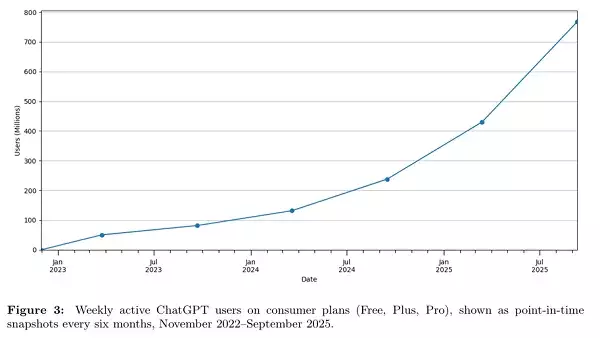Artificial intelligence, especially conversational models like ChatGPT, has been heralded as a revolutionary force destined to transform industries and elevate human productivity. Initially, the narrative focused on AI empowering creative pursuits—generating novel content, fostering innovation, and augmenting intellectual work. Yet, recent usage data suggests a disconcerting shift: AI is increasingly relegated to practical, utilitarian functions, while its role as an creative partner wanes. This pivot reveals a troubling trend—our reliance on AI is narrowing, and perhaps our confidence in its ability to foster genuine innovation is waning.
The report’s core insight lies in usage patterns: a dominant preference for seeking information, practical guidance, and task execution, with dramatically diminished engagement in activities involving creative writing or original thought. The decline from 36% to 24% in writing-related conversations over a year indicates a possible erosion in AI’s perceived value as a creative collaborator. Is this an indication that users no longer see AI as a tool to inspire or craft original works, but rather as a quick-answer service? If so, it highlights a fundamental shift away from viewing AI as a partner in imagination towards a means of efficiency—ironically, the very efficiency that could hinder the development of human creative skills.
This change sparks an urgent question: have we, as a society, become overly cautious or conservative regarding the use of AI in creative domains? The signs suggest a growing skepticism about AI’s ability to genuinely innovate or inspire. Instead, users appear hesitant to delegate complex, imaginative tasks, preferring instead to use AI for straightforward information retrieval or decision-making. This hesitance undermines the transformative potential that AI can hold for industries like art, literature, and content creation—areas where human intuition and originality are paramount.
The Shift Toward Pragmatism: A License for Mediocrity?
The steady rise in “Seeking Information” from 14% to 24% underscores an emerging pattern: people are increasingly treating AI as an upgraded search engine rather than a creative problem solver. While the convenience of instant, curated responses appeals to a broad user base, this trend carries a more troubling societal implication. If AI becomes a default source for quick facts and routine tasks, it risks stifling critical thinking, originality, and deep learning.
In many ways, this reflects a broader cultural shift towards pragmatism—a preference for immediate utility over long-term intellectual growth. While practicality is vital—it’s the backbone of real-world problem solving—it should not eclipse the importance of nurturing human ingenuity. If AI tools are primarily used to “do” rather than “create,” society risks cultivating a generation less inclined to innovate. Instead of inspiring new ideas, AI becomes a shortcut that discourages deep engagement with complex problems, effectively promoting mediocrity and complacency.
Furthermore, this tendency risks turning AI into a crutch that hampers the development of personal skills. Writing, especially creative writing, is more than mere output—it’s a reflection of individual voice, thought process, and imagination. If AI is increasingly seen as an effortless substitute, we may inadvertently devalue human ingenuity, reducing it to a craft useful only for rote tasks.
Implications for the Future of AI and Society
The growing dominance of utilitarian uses for AI suggests a future where human creativity is sidelined in favor of immediate efficiency and information retrieval. From a center-right perspective, this trend signals a concerning overreach of technology into the core domains that make us distinct as humans—imagination, critical thinking, and artistic expression. While embracing AI’s practical benefits is sensible, blindly ceding creative control risks turning innovation into mere automation—a form of technological stagnation disguised as progress.
Moreover, the decline in creative application usage hints at a broader societal malaise: a loss of confidence or aspiration to push boundaries. If users view AI primarily as a tool for “getting things done,” they may forget the importance of curiosity and experimentation that propel civilizations forward. It also signifies a missed opportunity for AI to serve as a catalyst for cultural and intellectual renewal, rather than just an efficient servant for everyday tasks.
Ultimately, the current trajectory reveals a paradox: the more AI adeptly handles routine and informational tasks, the less we seem willing to let it incite the creativity that drives human advancement. This cautious approach could preserve stability in the short term, but at the cost of long-term innovation. Without a conscious effort to re-engage with AI as a partner in creative endeavors, we risk stifling the very ingenuity that has historically fueled progress and prosperity.
In embracing AI’s potential, society must resist the allure of mere pragmatism and recognize that true advancement hinges on daring to innovate—an endeavor where human and machine collaboration can unlock unprecedented greatness.









Leave a Reply